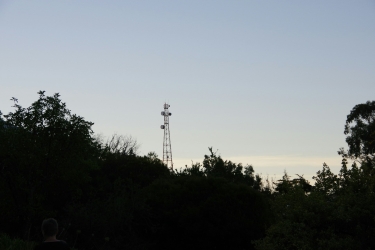In a statement, the ACCC said it will "not oppose the proposed regional mobile network and spectrum sharing agreements between Optus Mobile and TPG Telecom."
The regulatory body said it "considered the effects of the agreements on competition for retail and wholesale mobile services in Australia."
The ACCC found that the agreements are "unlikely to substantially lessen competition."
|
|
“The agreements will allow TPG to provide better coverage in regional areas, which will likely enhance its ability to compete during the term of the agreements, improving choice for regional consumers," ACCC Commissioner Dr Philip Williams said.
“The agreements are also likely to support Optus’ regional 5G rollout, particularly through access to TPG’s spectrum,” Dr Williams added.
Optus and TPG Telecom proposed that the services will start in early 2025 and covers both 4G and 5G.
As reported by Australian media, the deal will cover three agreements. First, Optus will use TPG Telecom's spectrum in defined regional areas in the 700MHz, 1800MHz, 3600MHz, and 3700MHz bands.
Second, Optus will provide TPG with network services by active mobile network infrastructure sharing in certain regional areas.
Third, TPG will decommission most of its sites in the coverage areas or transfer them to Optus.
During the review, TPG and Optus proposed measures to improve mobile services in regional areas. They suggested to provide "open wholesale access to their networks, divest certain spectrum, and make obligations to undertake certain regional investments."
However, these proposals will not be made obligatory on either party.
“In the absence of particular competition concerns about the proposed arrangement, these proposals are better considered through other policy and regulatory processes," Williams said.
Both telcos announced in April they have announced an agreement that will "boost the regional mobile network and give customers more choice."
TPG Telecom and Telstra announced a mobile network and spectrum deal but was struck down by the ACCC in December 2022 and was blocked by the Australian Competition Tribunal in June 2023.
So, why did the ACCC favour TPG Telecom and Optus instead of Telstra?
The ACCC reasoned that the "proposed agreements are unlikely to substantially reduce infrastructure competition from TPG."
It noted that the "competition impacts of the agreements are likely to be limited to geographic areas where TPG is not currently a significant competitor and is unlikely to become one in the future."
“TPG currently has significantly less infrastructure and coverage in regional areas compared to Telstra and to a lesser extent Optus. The improvement in TPG’s services during the term of this arrangement is likely to be greater than what TPG could have achieved on its own,” Dr Williams said.
In an ASX filing, Inaki Berroeta welcomed ACCC's decision.
“Our regional network sharing arrangement will deliver better service and coverage to our five and a half million mobile customers who will gain access to around 600,000 square kilometres of new coverage, more than doubling the size of TPG Telecom’s national mobile network."
"The expansion of our regional mobile network will drive growth in our customer base in regional and metropolitan areas. It will allow us to win and retain customers in the cities who need reliable mobile service when they travel to the bush and customers in the regional areas looking for a different choice of provider," he said.
Optus interim CEO Michael Venter described the decision as a "great outcome" for regional Australia.
“By sharing our infrastructure and technology, Optus and TPG will be able to deliver even more choice and better services for regional customers."
“This arrangement will allow Optus to press the fast forward button on 5G infrastructure roll-out to more regional communities. It will also provide Optus with access to more spectrum so regional customers can experience 5G’s fast speeds, low latency, and increased capacity."










































